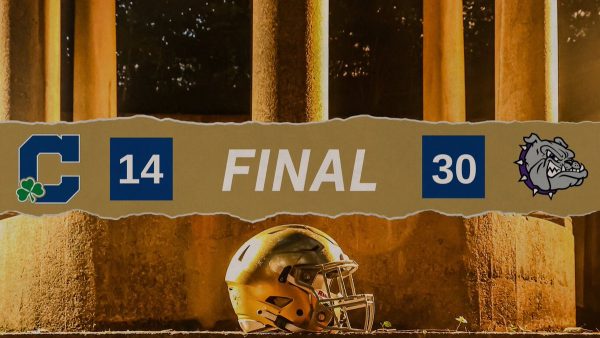Fewer colleges require ACT, SAT
However, counselor says students here should take both

Couselor Mrs. Kathy Pivonka said families should be aware of upcoming college admissions deadlines.
COVID-19 has disrupted SATs and ACTs, resulting in some colleges to deemphasize standardized tests, especially for the Class of 2021. Although this could benefit test-takers, students now will have to decide how, when and whether to take these tests.
But one counselor has a message for students here: You still need to take both the SAT and the ACT.
While the idea of decreasing the importance of test scores has recently gained media attention, the concept isn’t new. Before the novel coronavirus pandemic, both Indiana University and the University of Chicago, for example, had gone test optional, meaning that students could decide whether they wanted to submit their SAT and/or ACT scores as a part of application. The University of Chicago has been test optional for several years, and IU made the announcement just before the COVID-19 pandemic struck.
Some universities had even gone test-blind, meaning that scores aren’t ever looked at.
Having the choice to submit test scores can be beneficial for some, like those who struggle with test anxiety. Counselor Ms. Kathy Pivonka, who previously served as the senior associate director of admissions at Butler University, said, “Some students struggle at tests but are good students.”
Pivonka said that a holistic approach, which would involve looking at grade trends, recommendations, rigor and extracurricular and athletic participation, would be more advantageous to many students.
Despite the growing decrease in emphasis on the exams, one organization is still attempting to make plans. Pivonka said, “The ACT is trying to put together an at-home test (for use in the) late fall to early winter.”
However, Pivonka said that the date the ACT decides on will probably be too late for next year’s seniors to take the test and be able to submit their scores, especially for students who apply early, but some students may be able to take advantage of at an-home test.
But perhaps the one of the most discussed issues when it comes to at-home testing and standardized examination in general is the preparation divide. Pivonka noted that wealthier students would most likely have the money to pay for a tutor or books to help them study, while students without these financial means would not, making them less prepared for exams.
Pivonka noted that free test prep is available, though, for both the ACT and the SAT.
Race is another topic concerning the SATs and ACTs. In regards to testing discrimination, Pivonka said that discussions surrounding the issue had taken place long before the pandemic.
Though some colleges are remaining test-optional post-pandemic, most are only becoming test-optional for the next one, two or three years. Pivonka encourages that students still test in order to have submittable scores if and when the time comes. She also said that students should take both the SAT and the ACT and talk with their counselor to decide which is best for them.
Editor’s note: This story was written by a student enrolled in the summer school journalism class. Julia Hurley is a rising freshman.

Julia Hurley is a freshman and a reporter for the Megaphone. At Cathedral, she sings in the concert choir and plans to participate in theater. In her free...






